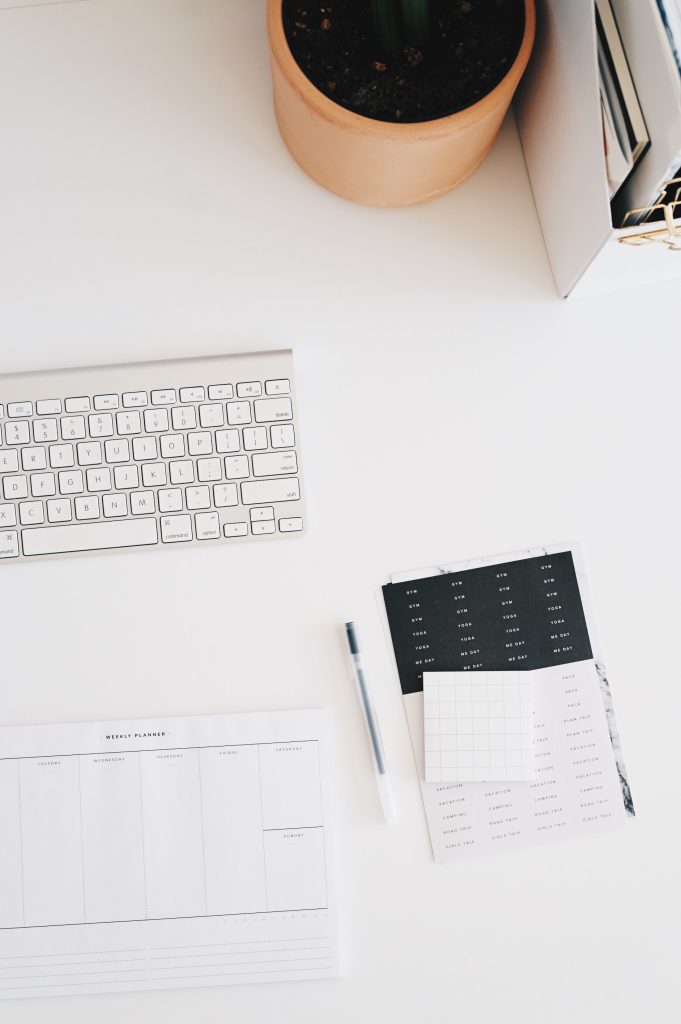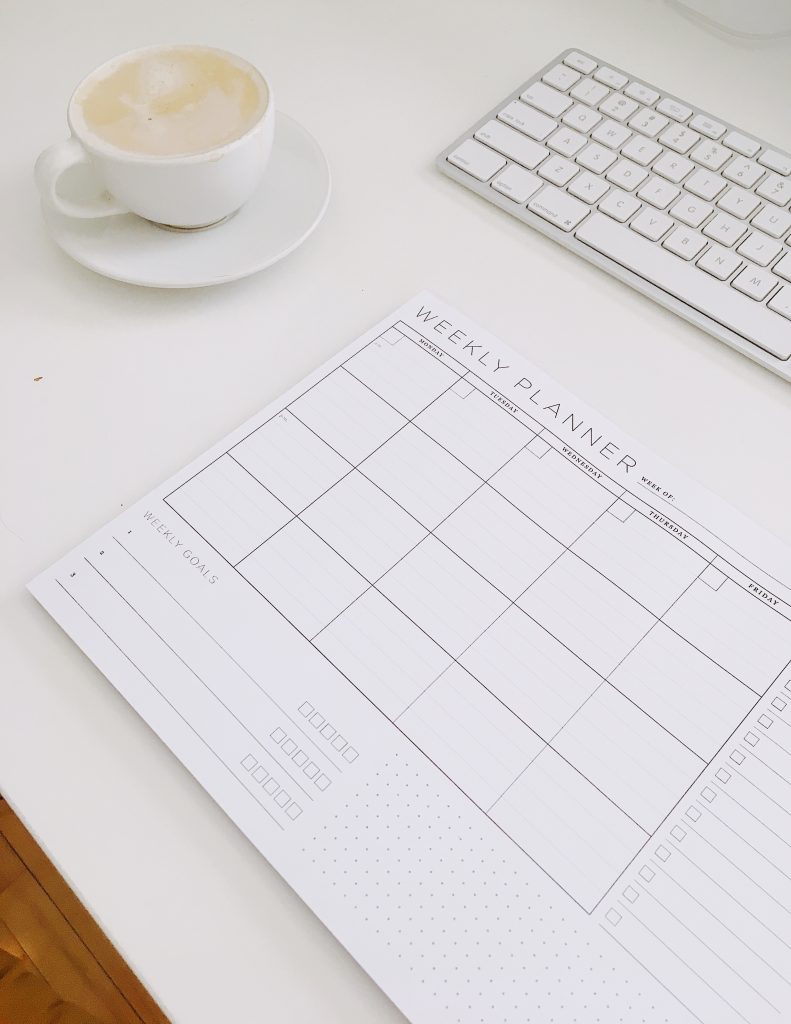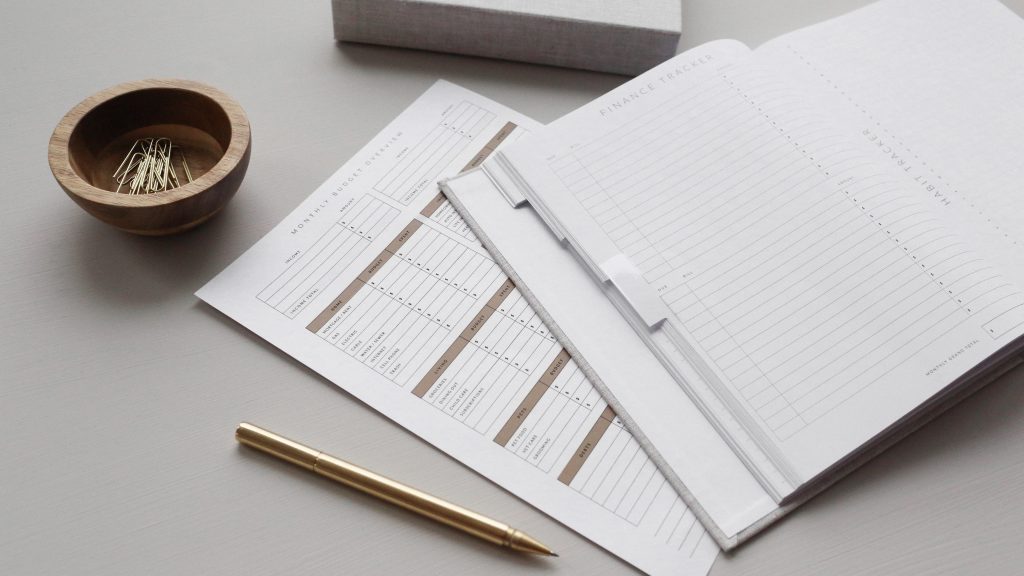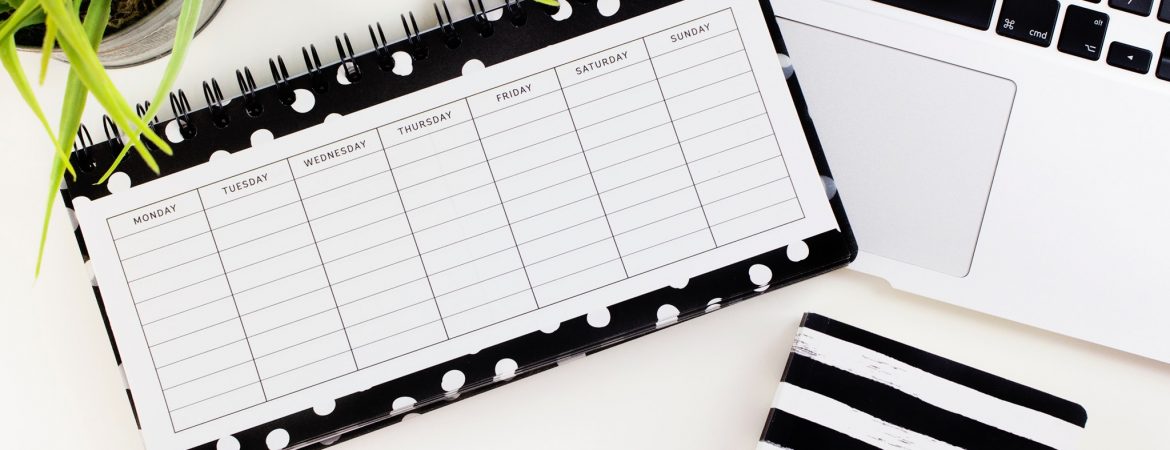Using a planner doesn’t have to be an overwhelming experience, even if you are not sure how to approach it for the first time. The typical approach of adding lots of tasks, schedules, and events is often more confusing than helpful, since it is usually not organized in a way that is easy to understand. Instead, planning should help focus and redirect you throughout the day. Establishing a system that works for you is essential, and gives a clear process for setting your goals each month. Planning systems help your planner to be more functional, and less intimidating if you are just starting out.

By design, emails and social media accounts create a lot of distraction. With an emphasis on bringing you all kinds of different information, digital platforms force you to interact with the world in a chaotic fashion. On the other hand, planners allow you to focus on specific tasks. The act of writing down information gives us a better understanding of what we are trying to accomplish, and makes it easier for us to remember it later. While giving you an effective way to focus on your objective, planners are also fun to use. You’ll remember more, and be less overwhelmed with all the items on your agenda.
A key part of your system should be a master calendar or schedule for all of your different appointments and tasks throughout the month. This helps to coordinate schedules with family members, and helps you focus on the information that is relevant to you. Your master calendar can be written down in a monthly planner, or managed through iCalendar or Google Calendar. Having a master schedule gives you the ability to organize, without being distracted by all the information you have written down.

One of the most important elements of effective planning is setting aside the time to get it done. Giving yourself the opportunity to work on your planner without any distractions is crucial for developing your own system, and will help you manage your time more efficiently. Having one day each week that is designated for entering your essential tasks and activities will help you stay organized and productive. It is up to you which day you choose, as long as you make sure to spend consistent time on it for the best results.
A key element of systematic planning is making sure to plan each individual day before it starts. Goal setting with tools such as a bullet journal can help you prioritize tasks throughout the month, and activities can be entered into your daily section by order of importance. How you determine priority can be the result of journaling over several weeks, or simply a decision you make based on how you feel that day. Once you have determined your order of importance for each item, they can be added to your planner in a more cohesive, organized way. This process will help you stay focused, and hopefully become less overwhelmed by all your different chores and lists.

Using your planner systematically will help you get the most use out of it, and make it a more effective tool for organizing your activities and schedules. It makes journaling more consistently focused over time, eliminating the hassle of adding an overwhelming amount of information on each page. Try to use your planner more systematically, and see if it helps you stay organized throughout the week. Remember to plan boldly, and be you.

